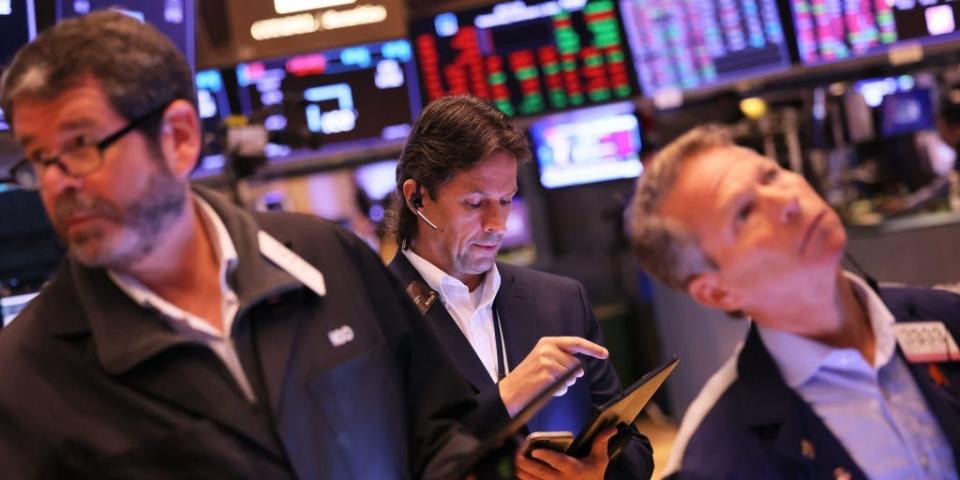The economy isn’t seeing “immaculate disinflation,” and Fed rate cuts will come later than markets expect, JPMorgan asset manager said.
Wage growth remains strong, challenging hopes for inflation falling to 2% soon.
A Morgan Stanley economist echoed concerns of sticky inflation, saying the Fed won’t cut rates until June.
Markets have rallied on the prospect of a cooling economy that will bring on rate cuts, but they may be getting ahead of themselves, analysts said.
JPMorgan Asset Management’s Priya Misra said inflation will likely to take longer to cool off than markets are currently expecting.
“The market’s pricing in a very quick pace of decline,” she told Bloomberg TV on Friday, before the jobs report came out. “I think what the markets are saying is that we’re going to have immaculate disinflation, the economy is OK, but inflation is going to be at 2% so the Fed can start to cut. I’m not so sure about the immaculate aspect of that, or the disinflation continuing to 2%.”
Economists like Paul Krugman have recently highlighted how inflation has tapered without triggering a sharp rise in unemployment or an economic downturn, saying that “immaculate disinflation” is happening.
A weaker-than-expected inflation report last month added more fuel to a monster rally in stocks, as investors wagered that rate hikes have peaked as the economy cools.
But Misra remains skeptical, citing robust wage growth. In fact, the November jobs report confirmed her view, showing wages rose 4% annually as payroll gains topped forecasts while the unemployment rate unexpectedly dipped.
“Year-over-year wages are running at 4%,” she said. “How does the Fed look at that and say inflation is going to be at 2%? So I think the threshold to cut is high. [The Fed] will want complete confidence that inflation is going back to 2%.”
Morgan Stanley senior economist Sarah Wolfe echoed Misra’s warning that inflation will stay stickier than expected and predicted the Fed won’t cut rate until June next year.
“Markets are pushing on for a March cut, but the inflation data’s not going to feel comfortable enough for [the Fed] to do so,” she told Bloomberg TV.
Read the original article on Business Insider
Credit: Source link




